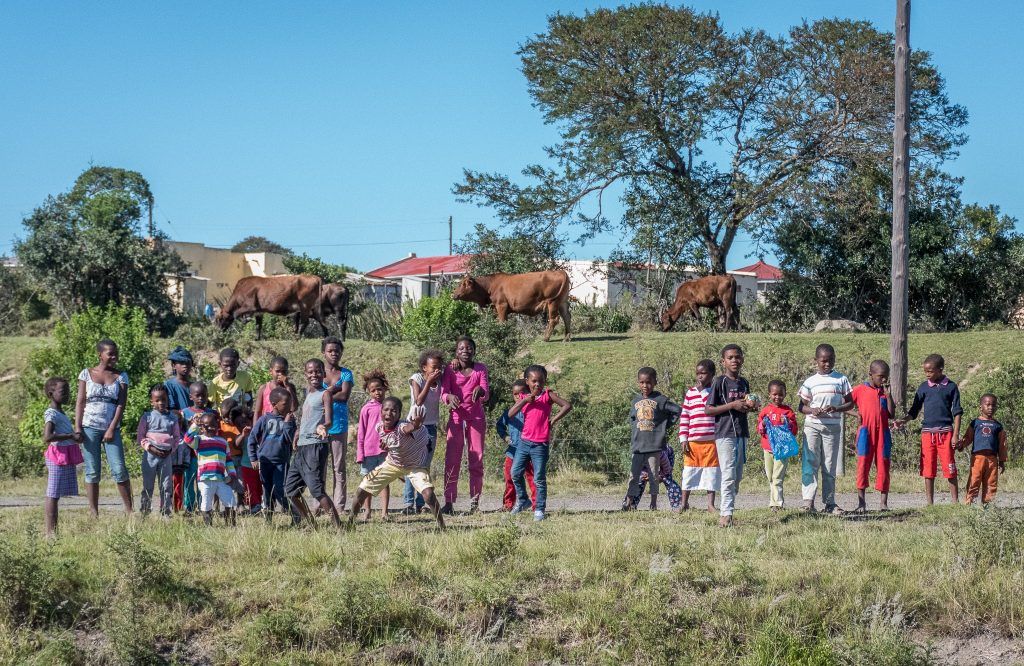Shawna Hoffman here, from The Rockefeller Foundation’s M&E team. At Evaluation 2017– which will focus on Learning to Action – I’ll be chairing a multipaper session that will explore challenges and opportunities evaluating diverse programs in different countries in Africa. The upcoming session got me reflecting on the recent conference of our peer association, African Evaluation Association (AfrEA), and on priorities for evaluators working in Africa more broadly.
In March, evaluators from across Africa and the globe gathered in Uganda for the 8th AfrEA conference. The theme of this year’s conference was the Sustainable Development Goals (SDGs), with a focus on how to hold stakeholders accountable for delivering on – and generating evaluative evidence about – the SDGs.
The 17 goals which constitute the SDGs are by their nature both ambitious and broad – tackling issues ranging from gender equality and health to infrastructure and climate change. By 2030, governments have committed to reaching 169 specific targets such as “reduce at least by half the proportion of men, women and children of all ages living in poverty in all its dimensions…” And “progressively achieve and sustain income growth of the bottom 40 per cent of the population at a rate higher than the national average.”
Over the next 13 years in the lead up to 2030, evaluators have an important role to play in supporting national governments to integrate the SDGs into their development agendas, and holding them accountable for meaningful, demonstrable results.
Drawing on cases from across Africa, the presenters in our multipaper panel will share their experiences translating learning into action in support of achievement of the SDGs. The session will explore topics such as how evaluators navigate complex relationships between program implementers, funders and external evaluators, drawing on a case from a child labor prevention program in Mozambique. We will also hear about the results of evaluations of governance, education, and health interventions in Liberia, Ethiopia, and Sierra Leone, respectively. Finally, one panelist will share recent research on how “leadership” is conceptualized and evaluated by Southern leaders, based on a case study conducted in East Africa.

Hot Tip: Join Maria DiFuccia, Kate Marple-Cantell, Fozya Tesfa Adem, Soumya Alva, Emma Fieldhouse, and other colleagues at Evaluation 2017 on Wednesday November 8, 4:30-6pm (Session ICCE6) for what promises to be a great discussion!
Rad Resources:
- For more on AfrEA’s 2017 Conference, check out: this previous AEA365 post by Alyna Wyatt and Veronica Olazabal, the AfrEA conference website, and this conference report.
- For more on the SDGs, refer to the official UN SDG page, Evalpartner on the SDGs, and this previous post from our colleagues Mike Hendricks and Jim Rugh.
The American Evaluation Association is celebrating International and Cross-Cultural (ICCE) TIG Week with our colleagues in the International and Cross-Cultural Topical Interest Group. The contributions all this week to aea365 come from our ICCE TIG members. Do you have questions, concerns, kudos, or content to extend this aea365 contribution? Please add them in the comments section for this post on the aea365 webpage so that we may enrich our community of practice. Would you like to submit an aea365 Tip? Please send a note of interest to aea365@eval.org. aea365 is sponsored by the American Evaluation Association and provides a Tip-a-Day by and for evaluators.
